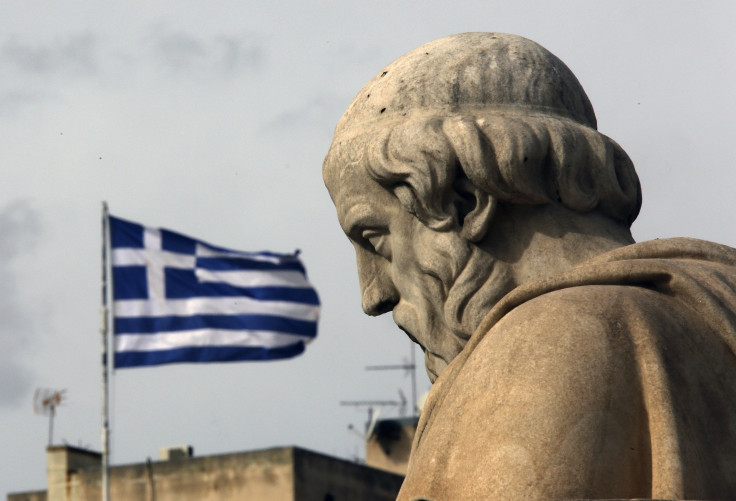Greek Prime Minister Tsipras Quotes Sophocles: What Do Ancient Greek Playwrights And Philosophers Say About Debt?

As he defended himself and Greece’s government before the European Parliament Wednesday amid ongoing talks over the country’s debt crisis, Greek Prime Minister Alexis Tsipras closed his speech by invoking Sophocles, the ancient Greek playwright, as a reminder of the importance of “justice” in laws. Tsipras, known as a charismatic orator, has made frequent references to antiquity throughout his election and the financial crisis as he has battled the austerity measures imposed by Germany, the International Monetary Fund and other international creditors on Greece.
“Sophocles taught us that the greatest of all human laws is justice…and I think that is something we have to remember,” Tsipras said, according to the Guardian. The connection between the fiscal crisis, which reached a frenzy this week after a nationwide referendum voted against accepting the terms of another bailout, and the Greek tradition of tragedy has been recognized by more than just the prime minister. On Monday, someone edited the Wikipedia entry for “Greek tragedy” to include the line “the most important authors of Greek tragedies are Aeschylus, Sophocles, Euripides and Tsipras,” according to the Independent.
Today's Daily Cartoon by Tom Toro. Discover more cartoons here: http://t.co/Xk267FEL5H pic.twitter.com/E9KCvkDz7g
— The New Yorker (@NewYorker) July 7, 2015The role of justice, debt and governance holds a prominent place among ancient Greek philosophers and playwrights. Below are several quotes from Plato, Aristotle and Sophocles that still hold relevance for the current Greek financial crisis.
Plato, from The Republic:
It is not wise to say “that justice consists in the repayment of debts, and that good is the debt which a man owes to his friends, and evil the debt which he owes to his enemies” for “it is not true, if, as has been clearly shown, the injuring of another can be in no case just.”
"Speaking the truth and paying your debts is not a correct definition of justice."
"Justice is useful when they are useless, and useless when they are useful."
"They next proceed to make a law which fixes a sum of money as the qualification of citizenship; the sum is higher in one place and lower in another, as the oligarchy is more or less exclusive; and they allow no one whose property falls below the amount fixed to have any share in the government. These changes in the constitution they effect by force of arms, if intimidation has not already done their work."
Plato, from Laws:
"No one shall deposit money with another whom he does not trust as a friend, nor shall he lend money upon interest; and the borrower should be under no obligation to repay either capital or interest. That these principles are best, any one may see who compares them with the first principle and intention of a state."
Aristotle, from Nicomachean Ethics:
"In the case of loans, debtors wish their creditors did not exist, while creditors actually take care of their debtors, so it is thought that benefactors wish the objects of their action to exist since they will then get their gratitude, while the beneficiaries take no interest in making this return."
Sophocles, from Antigone:
"Nothing so evil as money ever grew to be current among men. This lays cities low, this drives men from their homes, this trains and warps honest souls till they set themselves to works of shame; this still teaches folk to practise villainies, and to know every godless deed. "
"Wear not, then, one mood only in thyself; think not that thy word, and thine alone, must be right. For if any man thinks that he alone is wise,-that in speech, or in mind, he hath no peer,-such a soul, when laid open, is ever found empty."
© Copyright IBTimes 2024. All rights reserved.






















